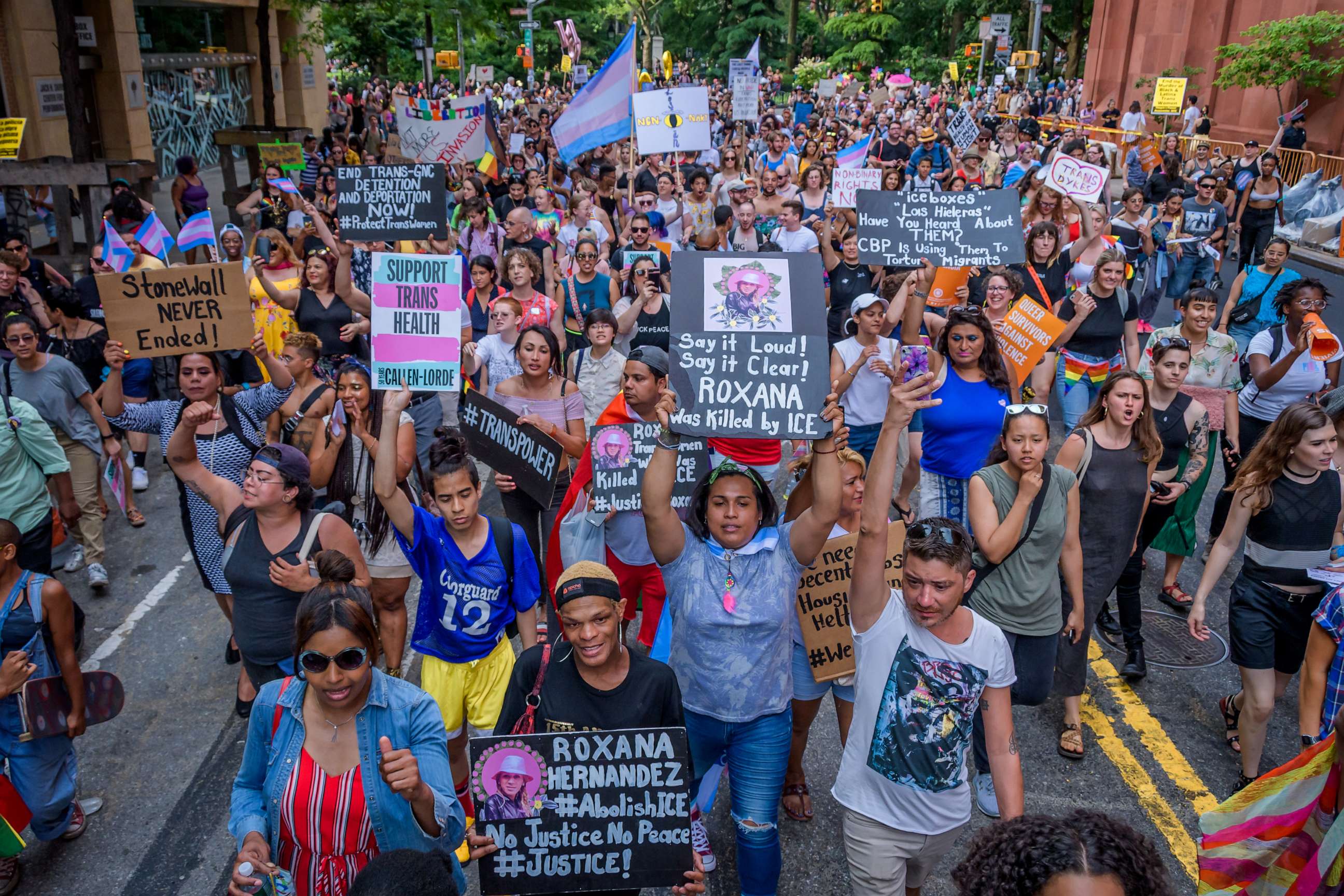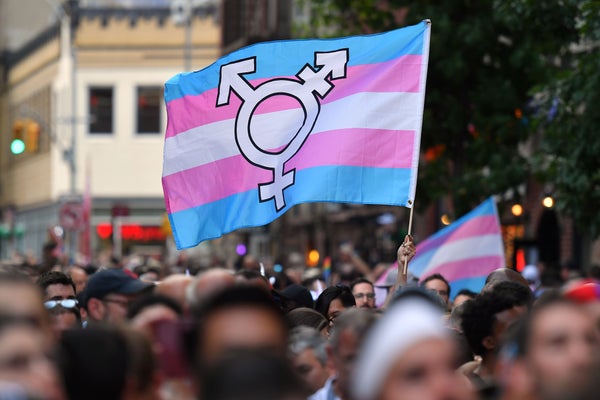The Transgender Phenomenon Puzzle
"Peer influence during this stage of life is very powerful. As well as the influence of social media, the review has heard accounts of female students forming intense friendships with other gender-questioning or transgender students at school and then identifying as trans themselves.""[In later childhood and into early puberty], online experience may have an effect on sense of self and expectations of puberty.""[The challenges autistic children face, despite being articulate and intelligent] can sometimes make it hard for these young people to express how they are feeling about their internal sensations, their gender identity and their sexual identity.""[Gen Zs and younger Millennials have different beliefs about the] fluidity and mutability of gender than older generations. Attitudes have changed at speed."Cass Report, U.K. review of child and adolescent gender care
 |
The Report is neutral in the sense that it supports neither the current 'social contagion' debate, nor the insistence of trans-specific lobbyists that children's rising uncertainty about their birth gender designation must be respected and interpreted as a need for such children to be offered transition therapy. The recently published and disseminated Cass Report led by British pediatrician Hilary Cass simply presented its findings, most of which would displease those who accept at face value the blase attitudes of groups who unquestioningly accept the need to transition children to improve their health and future prospects.
The surge within today's society seeing gender-distressed children referred to gender clinics is alarming to many, all the more so that medical societies and specialists appear to have accepted the arguments of trans-supportive groups that it is wrong to question children, their motives and their wishes. The contentious impression that many young people identify as trans as a result of "social contagion" in peer groups and promoted through social media sites is infuriating to committed transgender support groups.
This Report of recent vintage concluded that the rapid increase in numbers of children committed to transitioning their gender identities and the acceptance of their choices cannot be attributed to peer pressure and social media influence alone, for the rapid increase or why gender dysphoria has become so strikingly common a presentation when predominately biological males transition to biological females, a phenomenon that "is unlike that in any prior historical period".
The Report researchers noted that gender-distressed minors and their parents discussed with them issues about online information that describes normal adolescent discomfort as a possible sign of being trans and that particular influencers have had a "substantial impact on their child's belief and understanding of their gender". The term "social contagion" is disliked within the trans community. "Simplistic explanations of either kind (all trans people are born that way/it's all social contagion) do not consider the wide range of factors that can lead young people to present with gender-related distress and undervalues their experiences."
On the other hand, "de-transitioners" have described on social media, in blogs and published studies, being influenced by Tumblr, YouTube videos and online communities into transitioning. Another argument is that no evidence exists to support "transness" can be socially contagious, or a TikTok video can "totally destabilize" the gender identity of a child. Unless, of course, it is the sheer volume of the push toward acceptance of transitioning coming from a myriad of sources, all of which young people pay heed to.
Neurodiversity represents conditions like autism spectrum disorder and ADHD, with studies suggesting trans and gender-diverse people are three to six times likelier to be autistic than cisgenders. According to a Canadian study of 174 youth aged 15 and under referred for puberty blockers to any one of ten gender clinics operating in Canada, 81 percent were born female. Two thirds of the referrals had at minimum one other comorbidity diagnosis beyond gender dysphoria, such as anxiety, depression, ADHD or autism.
There were reports from some parents of natal girls that "their children had been through a period of trans identification", later recognizing they were not trans after all, but same-sex-attracted females. Speaking at a focus group, a gender-diverse youth made the observation that "a lot of trans people make YouTube videos which I think is a (major) informational source for a lot of people". Biological factors have not changed in the last ten years yet the disproportionate number of birth-registered females now identifying as trans or gender-diverse presents as a puzzling social/biological phenomenon.
 |
| Transgender pride flag. Angela Weiss Getty Image |
"[The Cass report didn't surprise] thoughtful professionals who provide this care. Since 2014, we've noticed this upward trend in overall referrals and from certain demographics, namely biological females and those who are neurodivergent.""We have to avoid extremes -- 'all these youth are transgender and will continue to identify as another gender for the rest of their life', or 'it's all due to social influence'.""[Many young people have benefited from social, medical or surgical transitioning, but an increasing number of others] have not only stopped their transition but have also regretted it as well.""Many of these youth will say they have been harmed, [that social factors influenced their reasons for transitioning."Dr. Joey Bonifacio, Toronto pediatrician, expert in gender medicine, specialist in adolescent medicine, St.Michael's Hospital
Labels: Biology, Cass Report, Gender Clinics, Gender-diverse, Transgender

0 Comments:
Post a Comment
<< Home